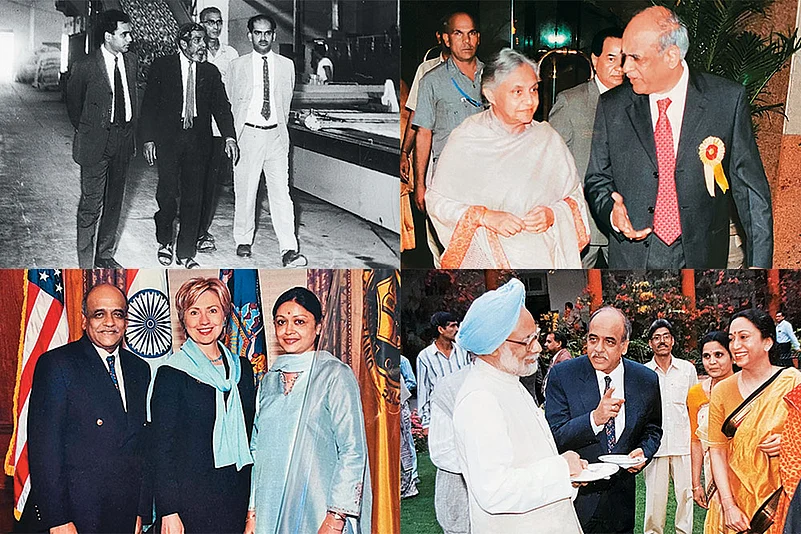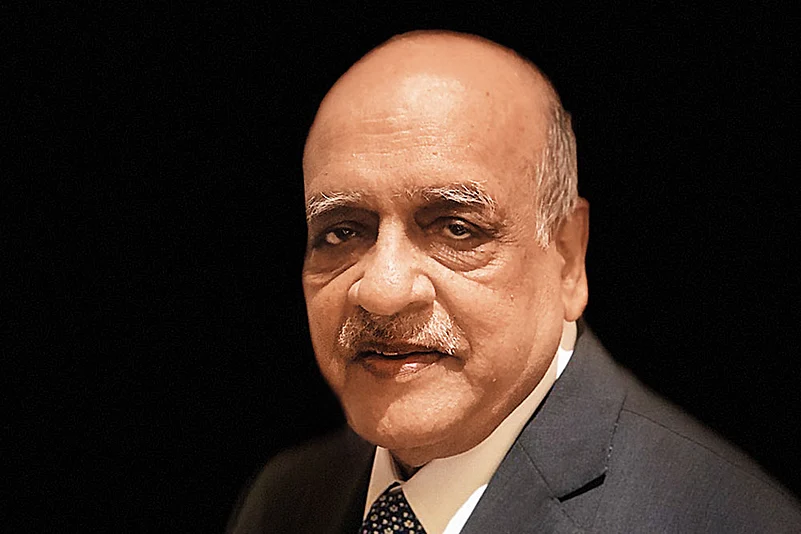I always knew that I wanted to work in the family business. So, fresh out of engineering school in the United States, with barely any formal work experience, I joined the business in the late 1966. I was given experience in one of our family’s smallest businesses—DCM Ltd—where I had to work in three shifts like any other recruit in the company.
In traditional businesses, especially in value-based business families, a new family entrant had to go through the grind from the bottom up. I can give the example of my father, Dr Bharat Ram, who, on his first day of work at the company, was sent to the boiler house to shovel coal into the boiler to produce steam for the factory. This continued for 15 days.
It was a lesson which neither he nor I ever forgot. In later years, it became a norm for scions of most business families to work in other companies before joining the family business. This applied to both my sons Ashish and Kartik.
In the period between India’s independence and the early 1990s, most family businesses were the firms that got licenses from the government to get into any kind of enterprise. So, the choice for a young entrepreneur or any family member wanting to start something different was conditional on the company acquiring a license.
My early years went in grooming and learning the ropes of the business and I had, at that point, no intention to branch out into something new. Along the way, there were challenges and opportunities. I was particularly keen on venturing into some new areas, which, by good fortune, happened as the company got the license to manufacture nylon tyre cord.
While at DCM, I identified a high growth sector in the manufacturing of nylon tyre cord fabric and from that, a new company called SRF Limited was born in 1970. I had discussed with my father that I would like to have a free hand in building SRF up with the family’s core values, which were established by my grandfather Sir Shri Ram. These continue to be the essence of SRF’s culture and value system.
The New Crop
Pre-1991-92, the real success stories that came out of India were that of the new technology companies like Infosys, Wipro, HCL, etc., as they were not constrained by any licensing requirements, since the government did not understand the area of new-age technology businesses.

Another trend that came about in the early ’90s was a recognition amongst the established business families that their children would have to be better educated in case they wanted to succeed in the new business environment. Therefore, there was a very strong move for the offspring of entrepreneurs to secure good education, either in India or, more often, abroad. This enabled the next generation to contribute and grow in the traditional family businesses as they returned with a broad worldview.
This continued until around 2015 when the first offshoot of new entrepreneurs started coming up. Initially, these entrepreneurs were in traditional businesses, but as the government started encouraging start-ups with seed funding, new entrepreneurs in the technology sector started emerging.
It is yet to be seen how successful these start-ups are going to be. The track record abroad is that approximately only 10% of all start-ups succeed. It is still early days in India, and, hopefully, our strike rate will be higher with our new-generation entrepreneurs, and the investors who would have learnt lessons from the West.
Building Blocks of Success
One important thing that new entrepreneurs must realise is that institutions get built over a period, even though they may see some short-term successes.
We are already seeing some start-ups that are facing issues and are not able to grow as they had envisaged. It is human nature to hope that new entrepreneurs and start-ups succeed and challenge established business houses. Ultimately, for the success of any nation, both established businesses and start-ups must succeed in a large measure to provide employment and growth.
My advice to new entrepreneurs is to make sound business plans and have them challenged by outsiders before putting money into projects. However, being an optimist, I would rather have young entrepreneurs take risks even if sometimes their projects do not work out. Having learnt from past mistakes, there is always an opportunity to start once again.
Finally, there is no difference between an entrepreneur from an established family with a well-known last name and a first-generation entrepreneur starting up. Ultimately, success will not be based on the last name of the entrepreneur but on the idea that the entrepreneur brings to the table. Competition in the marketplace and the soundness of the business idea will determine the success or failure of any new business.
I do not think success is inevitable, but if one is ready to accept hardship and adversity, stay humble, learn and grow, the chance of failure will be low.
The author is the chairman emeritus of multi-business conglomerate SRF Limited



























